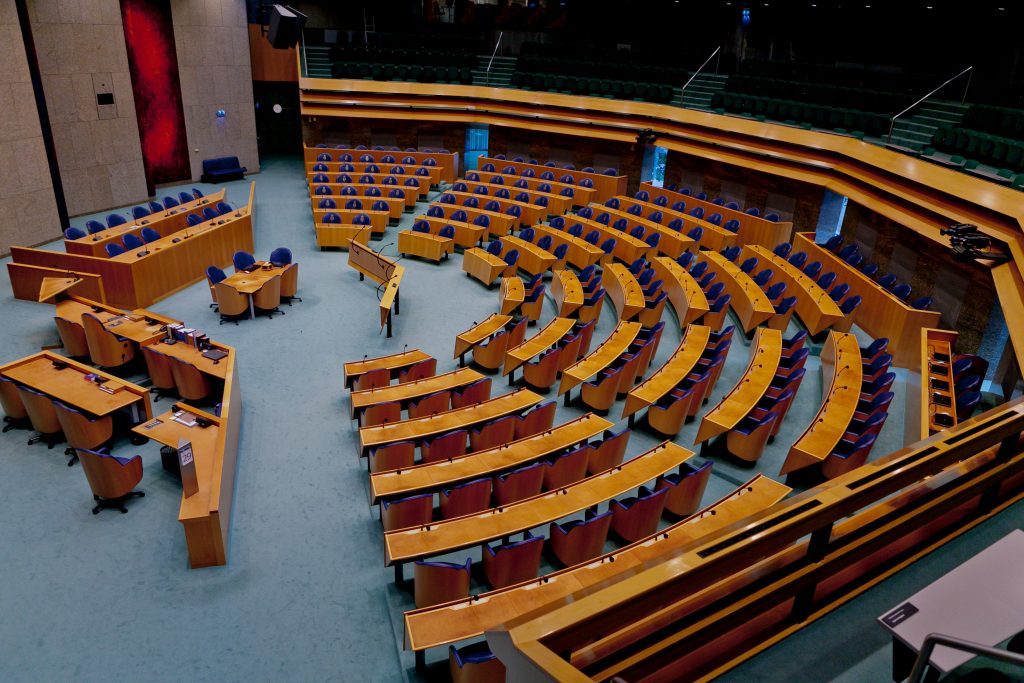Remarkably enough, an important decision about the future of the Dutch railway has not been declared controversial.
In Dutch politics there is a procedure for dealing with bills that are politically sensitive, especially when there is a caretaker cabinet. The House of Representatives can decide to label certain subjects as 'controversial', so that they do not appear on the parliamentary agenda until a new cabinet has taken office.
The permanent parliamentary committee for Infrastructure and Water Management recently decided to declare the decision on a nature permit for Schiphol and Lelystad Airport controversial. This also applies to the opening of Lelystad Airport and a proposed fourth approach route to Schiphol above the eastern Netherlands. These decisions are in line with the concerns of residents in the provinces of Utrecht and Gelderland, who fear a lot of nuisance from aircraft.
track
The parliamentary committee also wants the government's plan to introduce 'pay according to use' – better known as the kilometer charge – to be declared controversial. This decision comes after consultation with the Finance Committee. Remarkably enough, an important decision about the future of the Dutch railway has not been declared controversial. As a result, the cabinet can continue with plans to award the main rail network to NS privately, without offering other carriers more space on the track.
The CEO of Arriva Netherlands Anne Hettinga had expected that the House of Representatives would regard the extension of NS's monopoly position as too controversial to deal with during an outgoing cabinet period. The decision not to label this as controversial could have several implications, not only for Arriva but also for the rail sector as a whole.
Despite all the opposition, director Anne Hettinga still expects that Arriva may become a joint user of the main track between Zwolle and Groningen/Leeuwarden. According to him, the resistance is in violation of European regulations, quoted the Dagblad van het Noorden.
The decision not to label the NS monopoly on certain routes as controversial has implications not only for Arriva and other rail companies, but also for wider policy and public perception of what is and is not acceptable to discuss during an outgoing period. It remains a subject that raises more questions than answers and shows that the line between 'controversial' and 'non-controversial' in politics is not always clear. It is also possible that the political leanings of the House of Representatives and prevailing public opinion played a role in declaring this subject uncontroversial.

The media and public opinion also play a significant role. Subjects that receive a lot of media attention are more likely to be classified as controversial, partly because political parties do not want to be seen as pushing through unpopular measures.
When a cabinet submits its resignation, for example after a cabinet crisis, the caretaker cabinet remains in office until a new cabinet takes office. The House of Representatives decides what will and will not be discussed. Subjects that are considered too sensitive or far-reaching can be regarded as controversial by the parliamentary committees.
Parliamentary committees play an important role in determining which topics are regarded as controversial. These committees are made up of members of different political parties and can give their own interpretation of what should be considered 'controversial'. This can sometimes lead to conflicts, both within the committee and in the wider House of Representatives.
D66
Group chairman of D66, Jan Paternotte, has a different point of view. He believes that the House of Representatives should not sit on its hands but should continue working, even if the cabinet is outgoing. “These days cabinets fall more often and then you get a long formation. Those are periods when almost nothing happens. In the meantime, the problems are only getting bigger,” he warns.
Declaring topics as controversial in a period of a caretaker government can lead to delays in policy implementation and decision-making. On the other hand, it offers space for a new cabinet to take a fresh look at complex and sensitive subjects. It is a double-sided sword that can lead to both stagnation and informed decision-making.



